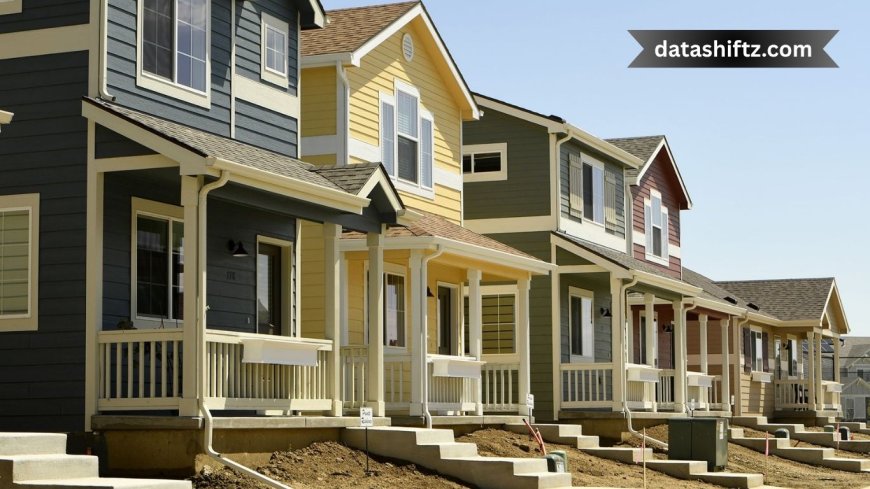Solving America’s Housing Crunch: The Affordable Housing Crisis

Why Housing Costs Are Breaking U.S. Households
Affordable housing is no longer just a low-income issue—it's a nationwide crisis impacting millions of Americans. As housing costs rise faster than wages, families across the country are being squeezed out of stable living situations. According to the National Low Income Housing Coalition, the U.S. is short more than 7 million affordable rental homes for extremely low-income renters. This growing disparity is reshaping communities and threatening long-term economic stability.
Understanding What “Affordable” Really Means
In simple terms, affordable housing is defined by the U.S. Department of Housing and Urban Development (HUD) as housing that costs no more than 30% of a household’s gross income. When housing costs exceed this benchmark, families are often forced to cut back on essentials like food, healthcare, or education just to stay housed.
Who Is Most Affected?
Affordable housing impacts a wide range of people:
-
Essential workers (teachers, nurses, janitors)
-
Seniors on fixed incomes
-
Young adults starting their careers
-
Veterans and the disabled
-
Single-income families
Why Is Housing Becoming Unaffordable?
Several overlapping factors are driving this nationwide affordability crisis:
1. Building Costs Are Skyrocketing
Inflation, labor shortages, and high material costs have made construction more expensive, making affordable housing less appealing to developers.
2. Outdated Local Laws
Strict zoning rules often limit the types of housing that can be built, especially in suburban or high-demand areas, stifling innovation and affordable options.
3. Wages Haven’t Kept Up
Many workers earn too little to afford local rents. In cities like Austin or Atlanta, even full-time minimum wage workers cannot afford a one-bedroom apartment.
4. Gentrification Drives Displacement
Neighborhood improvements often lead to rising rents, which can push long-time residents out of their homes.
Comparing the Gap: Wages vs. Rents in Major U.S. Cities
| City | Median Rent (1-BR) | Minimum Wage (Hourly) | Monthly Full-Time Income | Max Affordable Rent (30%) |
|---|---|---|---|---|
| San Francisco | $2,850 | $18.07 | $3,130 | $939 |
| New York City | $2,300 | $15.00 | $2,600 | $780 |
| Austin | $1,500 | $7.25 | $1,160 | $348 |
| Chicago | $1,700 | $15.80 | $2,525 | $757 |
| Atlanta | $1,400 | $7.25 | $1,160 | $348 |
National and Local Solutions: What’s Being Done?
Efforts to fix the housing crisis are underway—but progress is uneven. Government programs, nonprofit groups, and cities are experimenting with different solutions.
Federal-Level Initiatives
-
Section 8 Vouchers: Rent subsidies for low-income households.
-
Low-Income Housing Tax Credits: Encourages private developers to build affordable units.
-
HOME Grants: Federal funds allocated to state and local governments for affordable housing.
State & Community-Level Policies
-
Inclusionary Zoning: Requires developers to include affordable units in new projects.
-
Community Land Trusts: Keeps land permanently affordable through nonprofit ownership.
-
Tiny Homes & ADUs: Small, detached housing units that add affordable rental options.
What Needs to Happen Next? A Roadmap to Housing Equity
Here are several strategies experts suggest to expand affordable housing across the U.S.:
-
Increase federal and state investment in housing subsidies and development.
-
Modernize zoning laws to permit more multi-family and mixed-income housing.
-
Support nonprofit builders and affordable housing trusts.
-
Raise local minimum wages to better reflect the cost of living.
-
Offer tax breaks to property owners who commit to affordable rents.
-
Expand transit access so people can live farther from job centers if needed.
Stories from the Front Lines: The Real Faces Behind the Data
For every chart and policy, there’s a person facing housing insecurity. From parents juggling two jobs while living in a motel to young professionals priced out of their hometowns, the human cost of this crisis is severe. Housing isn’t just a market—it's a basic human need. Without stable shelter, it’s nearly impossible to maintain employment, education, or health.
Building a Better Future: Why Affordable Housing Matters to Everyone
The housing crisis is complex, but it's solvable. Creating and preserving affordable housing is a long-term investment in community health, economic mobility, and national resilience. As America faces this challenge, the question isn’t whether we can afford to build more affordable homes—it’s whether we can afford not to.
Solving the crisis will require political will, policy reform, public-private partnerships, and above all, a commitment to equity. Because in a country as wealthy and innovative as the U.S., everyone deserves a place to call home.
Final Thoughts: Housing as a Cornerstone of Stability
The affordable housing crisis is not just an economic issue—it’s a matter of dignity, opportunity, and equity. Millions of Americans are living one paycheck away from homelessness, not because they don't work hard, but because the system no longer supports the basic right to a secure and affordable home.
Addressing this crisis will require bold reforms, increased funding, and cross-sector collaboration. Policymakers must prioritize housing as critical infrastructure, while communities must embrace inclusive growth strategies that make room for all income levels.





























